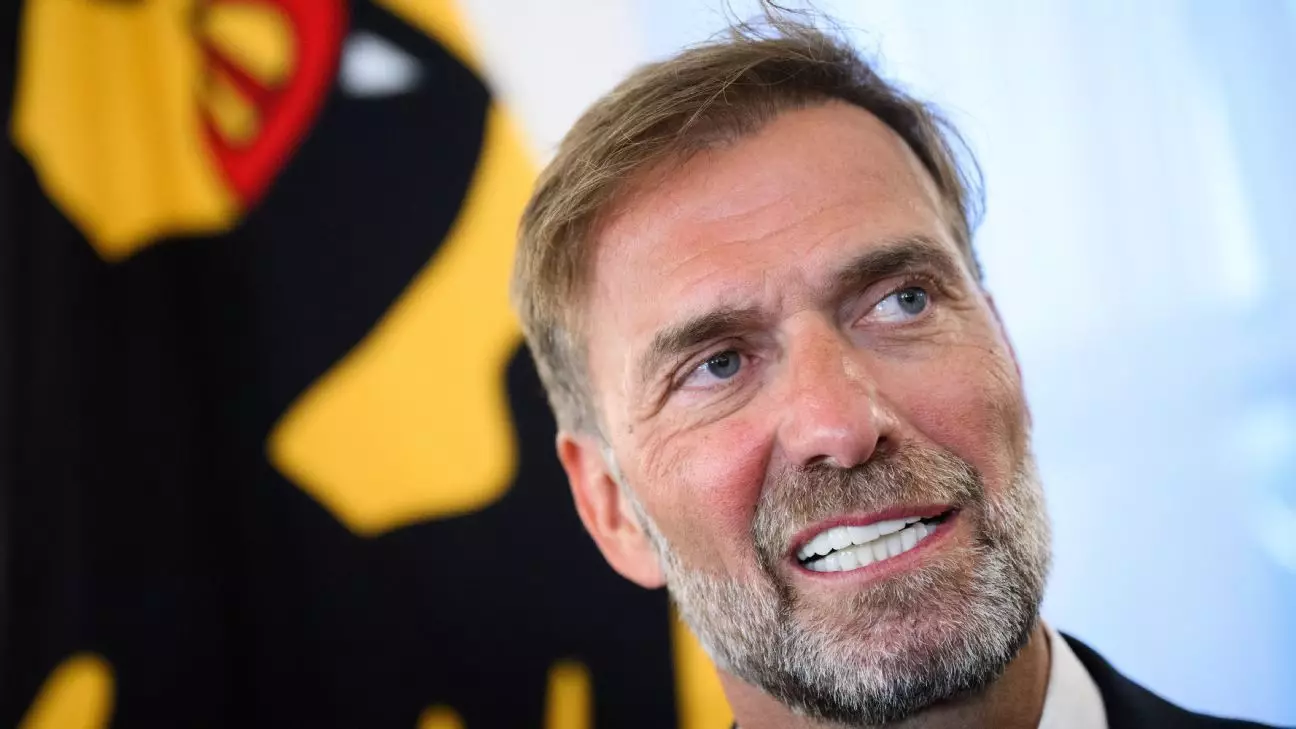The recent announcement regarding Jürgen Klopp’s transition to Red Bull as the head of global football has raised eyebrows across the football community. Klopp, known for his charismatic leadership and tactical prowess, is making a bold shift after a remarkable tenure at Liverpool. Many are questioning whether this partnership is a step forward or a misstep that could tarnish his legacy. His decision comes amidst criticism from fans of his former clubs, particularly in Germany, making the landscape even more complex.
Diving deeper into the controversy reveals a whirlwind of emotions from fans who feel jilted by Klopp’s decision. Supporters of clubs like Borussia Dortmund and Mainz, where Klopp built his reputation, expressed their disdain towards the association with Red Bull’s football ventures. This vitriol stems from a broader skepticism about corporate involvement in sports, especially in countries like Germany, where football is deeply intertwined with local cultures and community values. By stepping into this new role, Klopp risks generating a rift with the communities that once celebrated him.
His attempt to explain himself through media interviews only adds layers to the narrative. Klopp insists that he did not aim to “step on anybody’s toes,” distancing himself from the controversy in a way that sounds somewhat defensive. He emphasizes his love for his previous teams, but that sentiment doesn’t seem to quell the frustrations brewing among loyal supporters who feel abandoned. Klopp’s assertion that satisfying everyone is an insurmountable task echoes a sentiment many public figures understand, yet it does little to placate the discontent.
The crux of the criticism lies with Red Bull’s perceived ethos of ‘buying success’ in a country where teams thrive on tradition and grassroots support. RB Leipzig, a prominent figure within the Red Bull umbrella, often faces backlash as a symbol of commercial intrusion. Critics argue that this approach undermines the competitive balance and spirit of the game, rendering it more akin to a corporate spectacle than a community celebration. Klopp’s acceptance of a role within this corporate structure thus embodies a profound tension between modern sports management and traditional fan values.
Klopp, however, challenges this narrative by highlighting the positive aspects of Red Bull’s involvement in football, particularly concerning the revitalization of the East German football scene. His perspective suggests that the investment and infrastructure provided by Red Bull have a role in promoting competitive football where it was previously underdeveloped. While this might present an innovative strategy for club football, the ongoing debate about corporate influence still looms large.
In discussions about his future role with Red Bull, Klopp described his duties as primarily advisory, intended to support various clubs under the brand. This position may seem less direct than traditional coaching roles, yet it places him in the heart of decision-making dynamics. In many ways, being an adviser could mean shaping the club’s identity and strategy while balancing the interests of multiple stakeholders. Nevertheless, there is a potential hazard; his desire to create positive environments for coaches may inadvertently align him with practices that fans fundamentally dislike.
The emotional complexity is further highlighted by Klopp’s admission of not planning to remain on the sidelines. The transition from a hands-on coaching position to an advisory role could be interpreted as moving away from the spotlight he cultivated over nearly a decade at Liverpool. It raises questions about his professional trajectory. Is he seeking a phase of reflection, or is this strategic positioning for a triumphant return?
As Klopp navigates this new terrain, the challenge will be finding equilibrium between his admiration for traditional football values and the attractive prospects Red Bull presents. The fans’ reaction serves as a poignant reminder of the delicate relationship between football clubs and their ardent supporters. Whether or not Klopp can reconcile the corporate nature of Red Bull with a genuine passion for the game remains uncertain. His future endeavors will likely be closely monitored, as fans, pundits, and the football community anticipate the unfolding narrative of this remarkable coach in a transformed role.
Ultimately, Klopp’s journey with Red Bull embodies a larger conversation about football’s evolution, the balancing act between progress and tradition, and the unending quest for integrity amid commercialization.

